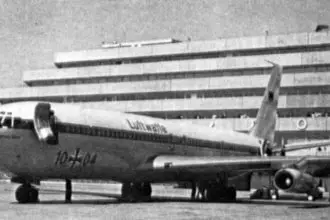
by Malila Prado
International Civil Aviation English Association (ICAEA)Malila Prado holds a Ph.D. in English from the University of São Paulo, Brazil. She has been involved in aviation English since 2008 and has focused on research in the field since 2010. She is an assistant professor in English Language and Literature Studies at BNU-HKBU United International College in China, where she continues her research on aviation English. Malila is also a board member of the International Civil Aviation English Association (ICAEA).
In the highly structured world of aviation, where standard operating procedures and efficient communication are supposed to be the norm, maintaining an individual’s language proficiency can sometimes be overlooked. Since 2008, when I began teaching aviation English to pilots, I have worked with professionals who rely on English every day for work but often struggle to perform confidently in tasks beyond routine interactions and are challenged to meet language proficiency requirements for licensing purposes.
Over the past seven years, I have seen firsthand how English proficiency demands have played a role in my husband’s experience. As a Brazilian airline pilot flying for a Chinese airline, he not only communicates with ATC, but interacts with crew members, reads technical documents, and receives training – all in English. His multilingual working environment often requires English skills that exceed the demands of the ICAO Language Proficiency Requirements (LPRs), including communicating with ground staff, reading manuals and writing reports. Even though he uses English daily, he knows that language in non-standard situations requires more than the predictable phrases of routine interactions. Therefore, he continues to practice and improve his English skills.
Clear communication in English: a vital safety tool
For air traffic controllers and pilots, a good level of English proficiency is key to safe communications during everyday operations. Meeting the ongoing requirements is a notable achievement, but it’s just the beginning since maintaining language proficiency requires dedicated practice.
Regular practice in English, much like recurrent simulator training, helps to prepare for unexpected situations. The language used in daily operations is often routine and predictable but may not fully equip pilots and controllers for high-pressure or non-standard situations, such as emergencies or more complex interactions with international traffic. Emergencies are the exception for most pilots and controllers but even so, they are required to participate in training, undergo medical checks and complete multiple tests at least once a year. The fact that these types of training and checks are so common in aviation only brings to light how important it is to consider language skills as well.
Understanding language loss
Research in applied linguistics has examined some of the challenges of retaining language proficiency over time. Language attrition, the gradual loss of proficiency, is a phenomenon that can affect anyone regardless of whether it is their first or additional language. It may affect even those who use a given language regularly in their jobs. Flight decks and ATC environments have become increasingly multicultural, increasing the need for all personnel to maintain proficiency in English as a shared language.
Most studies focus on language proficiency development rather than language attrition, which is probably one of the reasons why it is often assumed that once we master a language, we are free from the burden of studying it. This is not the case. Factors such as when we started learning the language, how long we were in contact with it, the amount and type of exposure we had, whether it was learned formally or informally, and our motivation to retain it, all influence how we use language, and how much language loss we may experience.
Like physical exercise, if we don’t continue to use our muscles regularly, they may fail when we need them most. Language is “stored” in our brain, but without consistent use, retrieving it becomes increasingly difficult. Language proficiency isn’t static; it evolves or regresses based on how much and how well we engage our language skills.
Many aviation operators simply participate in English language training only when it’s time to resit language proficiency tests for licensing purposes. Unfortunately, putting off language practice can affect performance, particularly in areas like fluency and interaction. This can result in lower language proficiency levels that don’t match operational requirements and have negative implications on the career of the pilot or controller.
Practical steps to maintain proficiency
Bardovi-Harlig and Burghardt, in their 2020 paper “Preventing attrition and promoting retention,” suggest several activities that may help, especially those of us who have learned English as an additional language. Some of their suggestions include regularly engaging with English reading materials and participating in interactive activities with others. Use the language in context rather than simply memorizing wordlists. They also recommend using apps and software to create learning opportunities and exploring local communities for language practice. I would add, engage with aviation English communities such as the International Civil Aviation English Association webpage (www.icaea.aero), the Aviation English Hub on LinkedIn, or the Instagram page @an.eye.on.you. Learning in the right context demonstrates relevance and increases personal motivation.
In the field of aviation English, there are numerous resources available to support aviation professionals in retaining their English proficiency. These can include regular aviation English classes or projects such as the Speak English Program offered by IFATCA and social media groups that provide opportunities for engagement and networking. The pilot/ATC communication databases such as liveatc.net, where you can retrieve audio files that support discussions through a critical approach to best practices in radiotelephony. Lastly, reading materials and courses from depositories like Skybrary and aviation-focused publications, like IFATCA’s The Controller and the ICAO Journal, also offer great insights.
Incorporating such activities into our professional development plan, even just an hour a week can make a huge difference over time. Not only does it improve communication in the operational environment, but it also contributes to safety.
The LPRs were designed to ensure that effective communication in English maintains safety in aviation operations. Operational proficiency in English is not a one-time achievement; it is dynamic and requires consistent attention and effort to meet the demands of a globalized industry. By integrating language maintenance into our ongoing professional development, we can remain confident and prepared for all challenges that will arise throughout our careers while continuing to aid in the safety of the international aviation community.








